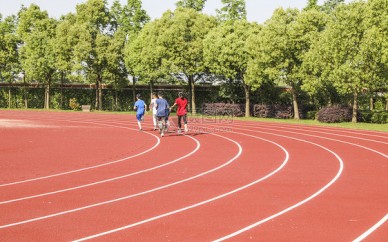1、一般现在时态的非第三人称单数中用动词原形
★ We often get up early. 我们经常起床很早。
★ They like swimming in the river. 他们喜欢在河里游泳。
2、与助动词或情态动词一起构成谓语时,要用原形。
★ Does your sister like English? 你妹妹喜欢英语吗?
★ Can I use your telephone? 我可以用你的电话吗?
3、祈使句的谓语动词,要用原形。
★ Close the door behind you, please. 请随手关上门。
★ Tom, close the door. 请不要关门。
4、感官动词hear, see等在主动语态中,宾语补足语要表动作的全过程时,动词用原形。
★ I saw the train come into the station. 我看见火车进站了。
★ I heard something drop on the floor. 我听到有东西落在地板上了。
5、使役动词let, make在主动语态中,它后的宾语补足语是动词时,动词要用原形。
★ He let Jack open the door. 他让杰克开门。
★ This dress makes her look fat. 这衣服她穿着显胖。
6、两个以上的并列不定式用and或or连接起来,第二个不定式常省去to,用原形。
★ It is fun to jump into pool or go swimming in a river in summer.在夏天跳进游泳池或江河里去游泳是很有趣的。
★ I want to go and ask Tom for help. 我想去请汤姆帮忙。
7、在why或why not后直接跟动词原形,表示"建议、劝告、责备或提醒"等。
★ Why not use my bicycle? 为什么不用我的自行车呢?
★ Why waste so much money? 为什么要浪费那么多钱呢?
8、动词help的宾语补足语由动词不定式充当时,这个动词可以用原形。
★ She helped me (to) clean the room. 她帮助我打扫房间。
★ She’s not willing to help me (to) do housework. 她不愿意帮助我做家务。
9、do ,does, did与动词原形连用,以加强语气
★ Do be careful! 一定要当心!
★ He does like swimming. 他的确喜欢游泳。
★ I did think he was wrong. 我的确认为他错了。
10、不定式作介词but和except的宾语,当其前有实意动词do时,后面的动词不定式要省略to。
★ Jack had nothing to do but watch TV. 杰克除了看电视外无事可做。
★ I did nothing but prepare my lessons.我什么也没做,只是在准备功课。
11、在一些固定的句型中,如had better(*好),would rather (宁愿),等后面的动词要用原形。如:
★ You had better have a good rest. 你*好好好休息一下。
★ He would rather go to work by bike. 他宁愿骑自行车去上班。


